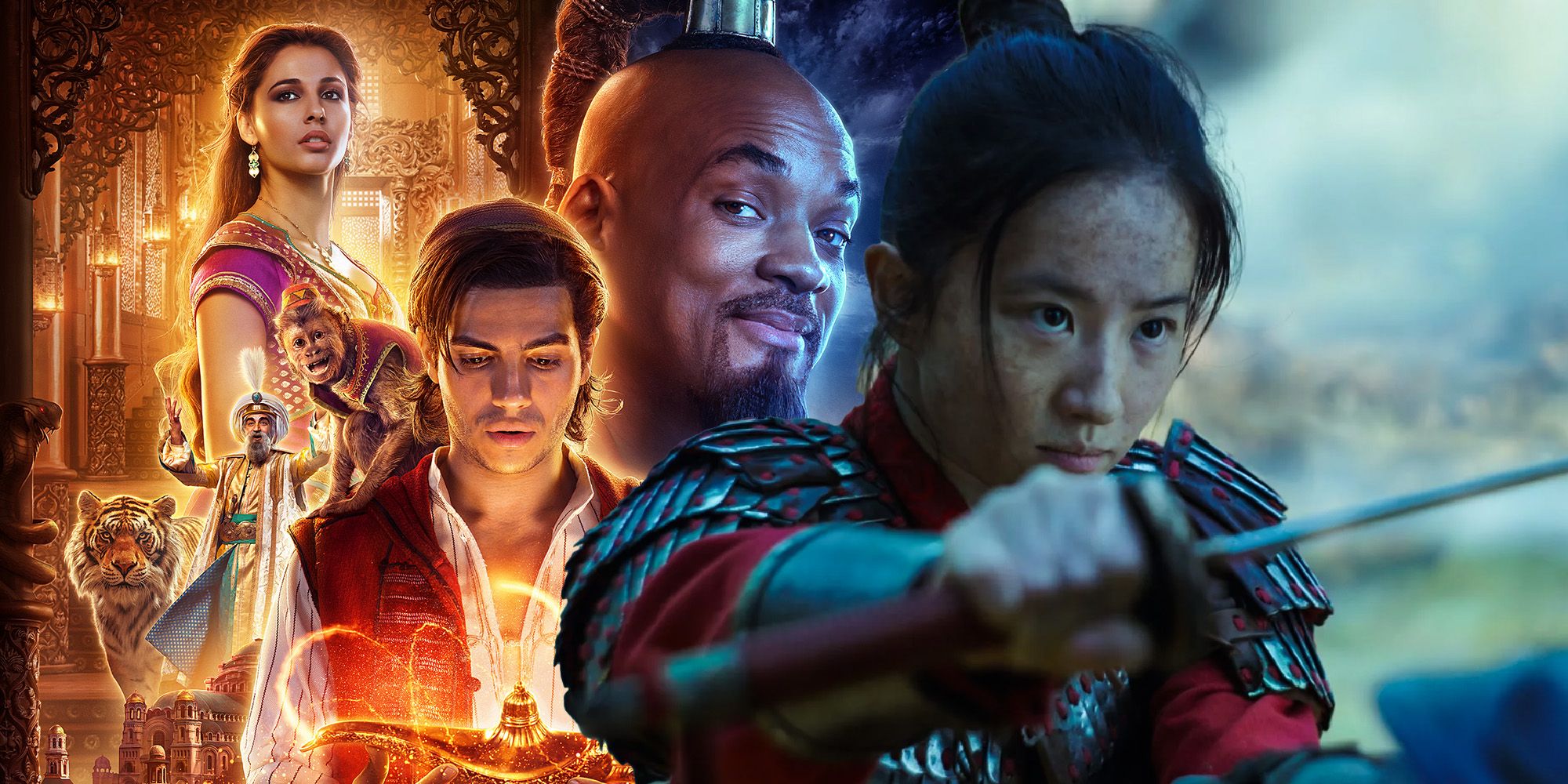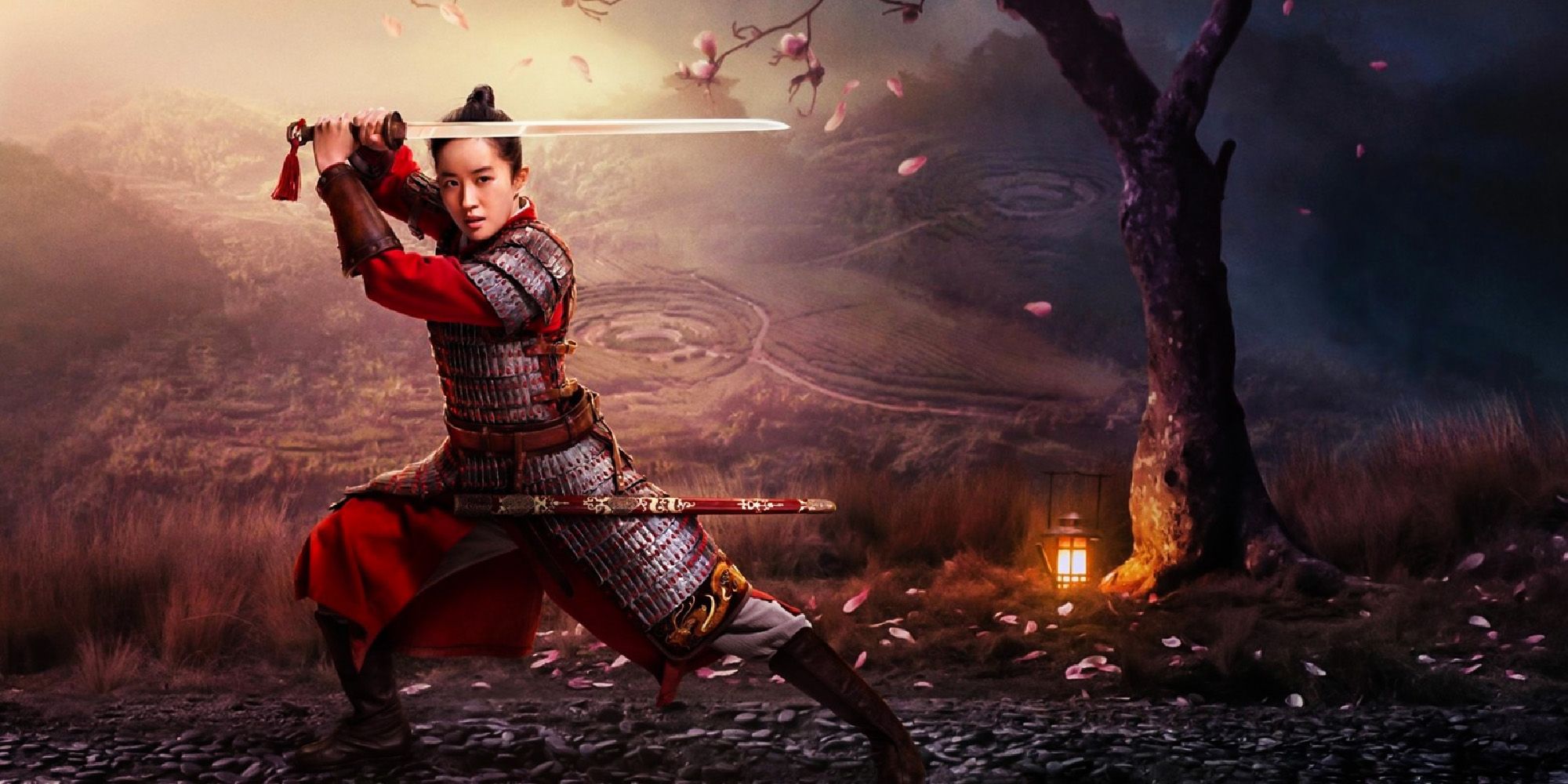Mulan & Aladdin Remakes Were A Missed Opportunity For Cultural Collaboration
Mulan & Aladdin Remakes Were A Missed Opportunity For Cultural Collaboration
The Disney Mulan and Aladdin remakes should have been collaborations with the film industries in China and the Middle East respectively, but weren’t.
You Are Reading :[thien_display_title]

Both Disney remakes Mulan and Aladdin were critical disappointments; what’s more disappointing however, is that the big-budget productions were also missed opportunities for history-making cultural collaboration. Starting with the 1996 live-action version of 101 Dalmatians, the trend of Disney remaking their beloved animated movies into updated feature films has proven profitable, with movies like Alice In Wonderland (2010) and The Lion King being massively popular (and financially lucrative). Despite being surprise box office hits, not every remake has been a winner among critics; yet, Disney does not appear to be learning anything from its past mistakes.
Disney first began exploring a live-action Mulan project in 2010; after numerous delays, Disney revived the project in March 2015, and in October 2016, Mulan was scheduled for a November 2, 2018 release. Also in October 2016, Disney revealed that an Aladdin remake was in production, and was expected to release sometime after Mulan. However, there were numerous setbacks in both productions — setbacks that likely would have been avoided if Disney had opted to collaborate with the cultures it was trying to depict and appeal to.
Almost from the beginning, both movies were steeped in controversies relating to the how they dealt with cultural material. Aladdin in particular was slammed for various reasons, including its casting of Naomi Scott as the lead Jasmine (Scott is not Middle Eastern), introducing a white character many felt was unnecessary, and for reports that white extras were made up to look Midde Eastern (i.e. “brownface”). Had there been more of an effort to lean on the expertise of the existing film industries in China and the Middle East, surely, many (if not all) of these controversies would not have happened.

With Aladdin and Mulan, Disney missed an opportunity to trully collaborate with another country in order to improve the representation in the original animated films. The production companies involved in both pictures were all American. Neither picture was directed by an individual from the respective cultures, despite both being based on folk tales with incredible cultural significance. Mulan is based on the ancient Chinese poem “The Ballad of Mulan,” while Aladdin is a retelling of the Middle Eastern folk tale “Aladdin and the Wonderful Lamp.” China has a thriving film industry, and so the choice to not hire Chinese writers, producers, or even director, is baffling.
The hiring of Niki Caro to direct the Mulan remake is especially insulting in this regard, given her relative lack of experience and the previous criticisms for how she depicted Japanese culture in her film Memory & Desire. Similarly, there are several critically-acclaimed Arab directors, like Saudi filmmaker Haifaa Al-Mansour (her first feature film Wadjda was nominated for a 2014 BAFTA award), who could have put an interesting spin on Aladdin. Instead, English director Guy Ritchie — known for his British gangster films — offered a Bollywood-inspired take on the Arabian story, prominently featuring American star Will Smith as the genie (and, for some reason, the mariner telling the story). Hiring Ritchie makes some sense, since he has had a number of blockbuster hits over the years (unlike Caro); yet, the Indian-inspired approach to this non-Indian story was misguided at best.
Interesting, early reports suggested that the Aladdin remake was going to be ambitious and nontraditional, and that the movie would be a nonlinear format [via THR]; this is more in keeping with Aladdin’s source material, the collection of Middle Eastern folk tales known colloquially as The Arabian Nights. It’s understandable for Disney to not want to mess with their existing formula, which has been a proven moneymaker in the past — but it is disappointing. With Mulan being such a failure in China, perhaps now Disney will stop trying to commoditize other cultures for the sake of entertainment — or at the very least, take a more multicultural approach in the future.
Link Source : https://screenrant.com/mulan-aladdin-remakes-bad-china-arab-missed-opportunity/
Movies -Netflix’s Best Squid Game Season 2 Idea Is A Front Man Prequel
Smallville 10 Things You Missed About Lex Luthor
Mortal Kombat SpinOffs Would Be Better For Johnny Cage Than A Sequel
Moon Knights God Gives Him a Huge Advantage Over Kang the Conqueror
Mass Effect 3 How to Romance Diana Allers
RHOA How Ultimate Girls Trip Changed Cynthia & Kenyas Friendship
Skyfall Silva Is Really Ms Son (James Bond Theory Explained)
